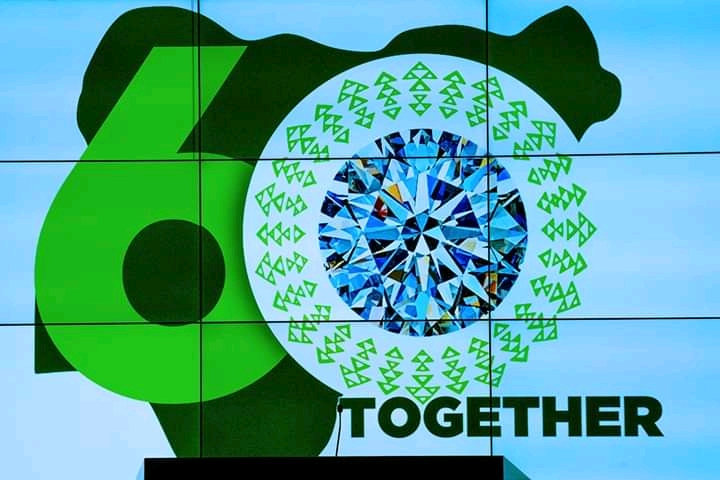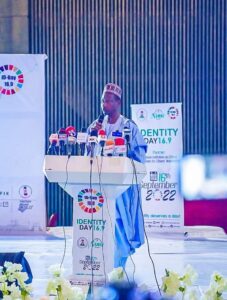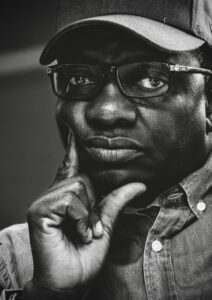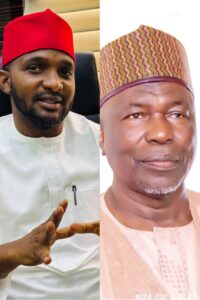
By Usman Abdullahi Koli
Nigeria became a British protectorate in the year 1901. The country was liberated from the sheckles of colonialism in 1960 when a strong movement of patriotic Nigerians succeeded in gaining her independence. Nigeria first became a republic in 1963, but succumbed to military rule three years after a bloody coup d’état.
To provide concrete evidence to the assertions I shall be making here in my piece, let me take a little tour into colonial era and make a comparison to the negativity and positivity Nigeria has witnessed in the course of its long journey.
The major negative impact on the economy of Nigeria was slavery. Hundreds of thousands of people were captured and sold as slaves in the new colonies of the world due to colonization; it was a painful experience for so many Nigerian families. Colonialism, however, in Nigeria provided an industrial and agricultural boom to the country. It also helped Nigerians to solve their medical problems as Europeans were exposed to new diseases in Africa and, therefore, had to find ways to treat them—and in the process cured African diseases as well.
Now, considering the fact that Nigeria gained her independence 60 years ago, the country is notorious for corruption perception index, high cost of governance, insecurity, unpatriotism, nepotism, hatred, ethno-religious crisis and acrimony.
Our Nation’s motto “peace and unity” has eroded and perhaps failed like Former President Olusegun Obasanjo and Prof. Wole Soyinka rightly noted. It seems “to uphold the peace and maintain the unity” of Nigeria and “the labour of our heroes past shall never be in vain” but, in practical reality that labour is swimming in vain because of how the country is tilting towards failure. Despite all the economic endowments in the land, it’s alarming that the country is yet to be one of the developed countries.
There is no doubt, my nation is blessed with very strong and dedicated leaders who have served the country with all sense of patriotism and left a legacy behind from 1960 to date.
Nigeria as the largest economy in Africa, has, since independence, helped other nations to grow up by supporting them with all that is required. Let’s take an example: Nigeria has negotiated and sold oil at concessionary prices to South Africa, Namibia, Ghana, Niger and other African countries. Ghana and Togo particularly owed Nigeria over thirty million dollars from ninety-day concessionary sales of crude oil.
Nigeria and Malaysia have been business allies. In 2015, the trade value between the two stood at $766.8 million with Malaysia’s main export to Nigeria comprising petroleum products, palm oils and palm-based products.
Upon gaining independence, Nigeria has stressed its foreign relationship with other nations and continents and has become a member of the AU, African Development Bank, Commonwealth of Nations, International Atomic Energy Agency, G15 among other internationally recognised organisations.
My dear nation got independence the same year with countries like Cameroon, Togo, Somalia, Ivory Coast and Mauritania. But these countries have gone far beyond expectations in terms of development, infrastructure, economic growth while leaving Nigeria behind.
Malaysia got its independence in 1957, three years before Nigeria, and now Malaysia is where we send our children for study and medical treatment. The UAE got her independence in 1971, eleven years after Nigeria. It has now become the most beautiful nation on earth with the tallest skyscrapers.
Ghanaians that lived in our country as refugees are now far ahead of us. Why? Our children now prefer to study medicine, architecture and other disciplines there. South Africa that we helped now owns the biggest malls in my country, banks and a telecommunications company we all are using.
So, who caused us these? The problem, to me, started when we failed to be just like how our forefathers were; we create enmity and hatred because of greediness and self interest, particularly as exhibited by our leaders.
It also started when a southerner saw a northerner as a thief, a killer, unwise; and then we in the north also started seeing them as such.
It all started when our good leaders were killed only because of tribal or religious difference which only a few people benefitted from. This happens when the leaders we produce become callous with no missions and visions.
This setback started when we began to kill each other because of political, religious and tribal differences, when we stoped helping each other, when we all stoped spreading humanity because of “I’m this and you are that” syndrome.
When we began to embrace Western way of living and dumped our traditions and culture. Time before now, a Christian would help a Muslim and marry among the two religions peacefully; an Igbo man would marry a Hausa woman and establish a happy family. But today, both parties are no longer friends.
It started when people with affluence didn’t want the poor to be rich and the poor didn’t want the rich to excell. It all started a long way back when we didn’t choose our leaders wisely. Believe me, no matter how good a leader is from another place, one would rather choose another who is not competent from his side. Why? Because we don’t trust each other.
In as much as we want Nigeria to progress, to stand on our feet, to get ourselves off the group of countries notorious for corruption, hunger, insecurity, insurgency, we must be united and love each other. We are fighting each other, blaming government, condemning ourselves, throwing of vulgar words and accusing ourselves. This is not the solution to our dozens of problems as a people.
Think of Tafawa Balewa and Azikwe and how they made the best friends in the world. Awolowo and Sardauna ate dinner together. Let’s emulate them. Let’s love one another.
If we are to move forward, we must consider three measures that would bring an end to these. When it comes to elections, vote wisely, vote from North or South, West or East as far as we all believe in the competence and capacity of a candidate, his commitment and dedication. With this, our progress is assured. Let’s keep our brothers and stop judging ourselves based on malicious intention. Forgive each other and let bygones be bygones.
Let me conclude with a portion of the Nigeria’s national anthem: “To be faithful loyal and honest, to serve Nigeria with all my strength to defend her unity and uphold her honor and glory” . This is a collective responsibility. Therefore we must be collectively ensured. Let us help the government by being good citizens and the government should equally help us, since it is the trust that made us vote for it. The rich should help the poor in order to have a sense of belonging. let a northerner feels south as his home and vice versa. Let’s marry each other, and be one Nigeria. Let us be more tolerant and exercise patience. We need to stand at ease and fight these issues of corruption, tribalism and religious bigotry. Believe me Nigeria will surely be great again.
United we stand, divided we fall.
Happy independence day. Long live Nigeria


